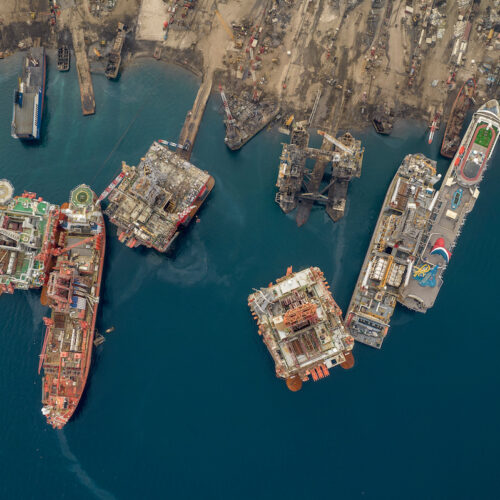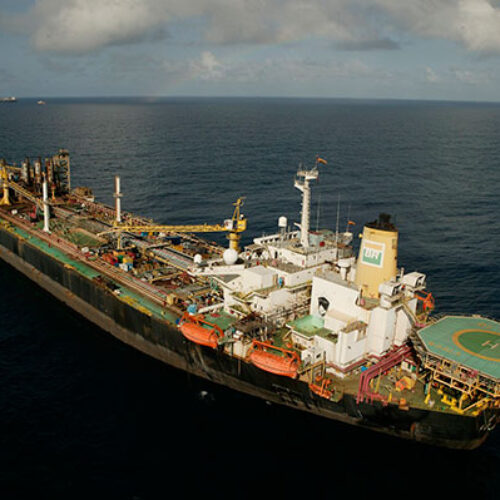Press Release – The EU agrees: the recycling of ships is a matter of global environmental justice
The Basel Convention's ban on the export of toxic ships to developing countries reestablished
In its proposal for a new regulation on waste shipments published last week, the European Commission surprised many observers by rejecting their earlier romance with the Hong Kong Convention and return to the Basel Convention's affirmation that the Global South should not become the world's dumping ground for hazardous wastes, even when those wastes are ships.
In 2013, EU-flagged vessels were removed from the scope of the waste shipment rules by way of the EU Ship Recycling Regulation, which aimed to ignore the Basel Convention in favor of following the Hong Kong Convention. To date, the Hong Kong Convention, crafted in 2009 under the auspices of the International Maritime Organization, is still not in force. Meanwhile, the Basel Convention's "Basel Ban", designed with a pointed intent to protect developing countries from exploitation, did enter in force as new Convention Article 4a on 5 December 2019.
The EU Waste Shipment Regulation proposal now states that EU-flagged vessels intended to be scrapped whilst under EU jurisdiction are no longer exempted from EU waste laws and need to comply the with Article 4a; this makes it illegal to export any form of hazardous waste from OECD to non-OECD countries for any reason. In a report published in September 2020, bolstered by a legal analysis by the Center for International Environmental Law (CIEL), the NGOs European Environmental Bureau, Basel Action Network, Greenpeace and the NGO Shipbreaking Platform had urged the EU to realign its legislation to respect its international legal commitments under the Basel Convention, including the Ban.

Unfortunately though, while this is seen as a significant signal, very little of the world's fleet of ships, including those flying EU flags, are going to be caught in an EU port when they declare they are to be recycled. It remains all too easy for ship owners to wait to make the fateful scrap announcement in the ports of non-OECD countries or even on the high seas, and thus legally avoid the Basel Ban. The Hong Kong Convention governs flag states, but flags are easily changed; further, the Hong Kong Convention does not have any trade restrictions to prevent the Global South from being disproportionately burdened with the world's most hazardous and difficult-to-recycle wastes.
Meanwhile, 30% of the tonnage broken down on the infamous shipbreaking beaches of India, Bangladesh and Pakistan, harming human health and the environment, is owned by EU-domiciled shipping companies. Thus it is that NGOs are seeking legislative reforms that place legal jurisdiction over exports defined not only by port states, and flags states, but by the countries that are the corporate domicile of ship owners as well.

According to the environmental and human rights groups, new thinking on how to hold shipping companies accountable for the proper management of their end-of-life ships is aligned with emerging European policies. The European Green Deal calls on the EU to manage its own waste and encourage a circular economy by building a robust and dynamic market for secondary materials, and one that avoids the blatant cost externalisation made possible via exports to weaker economies.

CONTACTS
Ingvild Jenssen, NGO Shipbreaking Platform, ingvild@shipbreakingplatform.org, +32 260 94 419.
Jim Puckett, Basel Action Network, jpuckett@ban.org, +1 206 652 5555.
Related news

Platform News – Carnival Corporation commits to sustainable ship recycling
NGOs commend cruise shipping giant Carnival Corporation for its recent decision to support clean, safe and just ship recycling.
... Read More
Press Release – Ship recycling in Aliağa under the spotlight
Our new report Ship Recycling in Turkey provides a comprehensive analysis of the current challenges faced by the ship recycling sector in Aliağa and also underscores the immense potential for driving forward sustainable practices.
... Read More
Platform News – EU ship recyclers join voices to promote clean and safe practices
Five European ship recycling yards announced yesterday that they have joined forces to effectively raise awareness of existing best practice and the fact that there is capacity… Read More

Press Release – Brazilian government asked to stop dumping toxic ships on South Asian beaches
The Brazilian CONTTMAF trade union federation and its member SINDMAR [1] have recently criticized the shipbreaking practices of Transpetro, the oil and gas transportation subsidiary of… Read More

Press Release – Union Bay residents still fighting against hazardous shipbreaking
The infamous shipbreaking company DWR persists in scrapping vessels in blatant violation of international and national rules and standards.
... Read More
Press Release – Petrobras to recycle offshore unit in Brazil for the first time
This significant move paves the way for the development of a recycling industry in Brazil.
... Read More